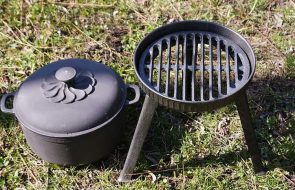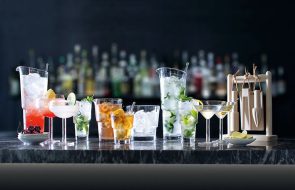Kitchenware performs various functions, which is worth remembering. It should be in demand and used every day. A measuring cup is a container that implies calculating the amount of liquid in it. Every housewife who wants to cook a delicious dish or drink will be convinced of its necessity.
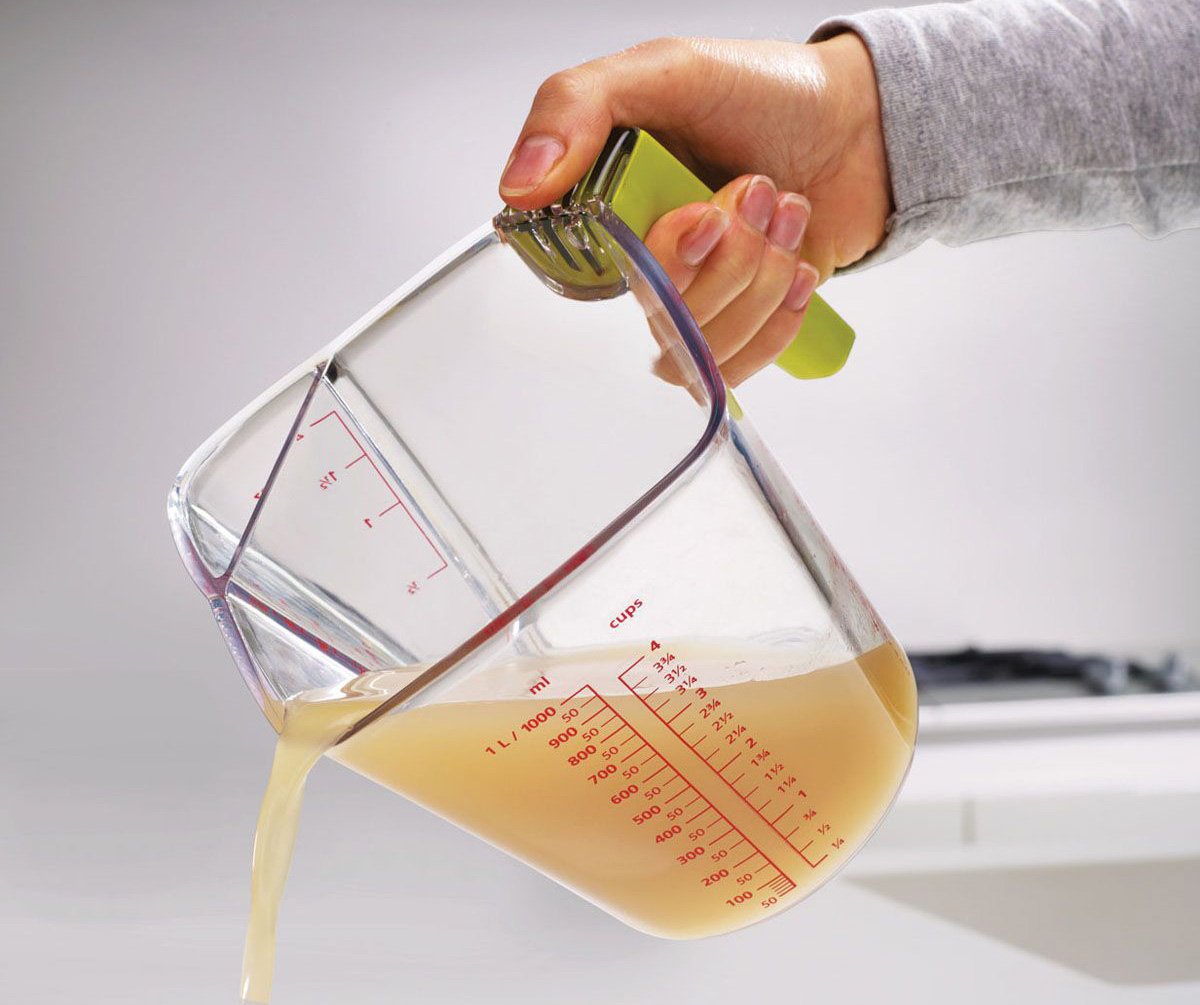
Content
What is a liquid measuring cup used for?
The main function of this vessel is to determine the volume in ml when you want to examine a certain substance. Previously, such a glass was made in the form of a bowl. Glass was not always used as the source material. For the nomadic Turkic tribes, it was enough to make a universal measuring device for liquids from wood.
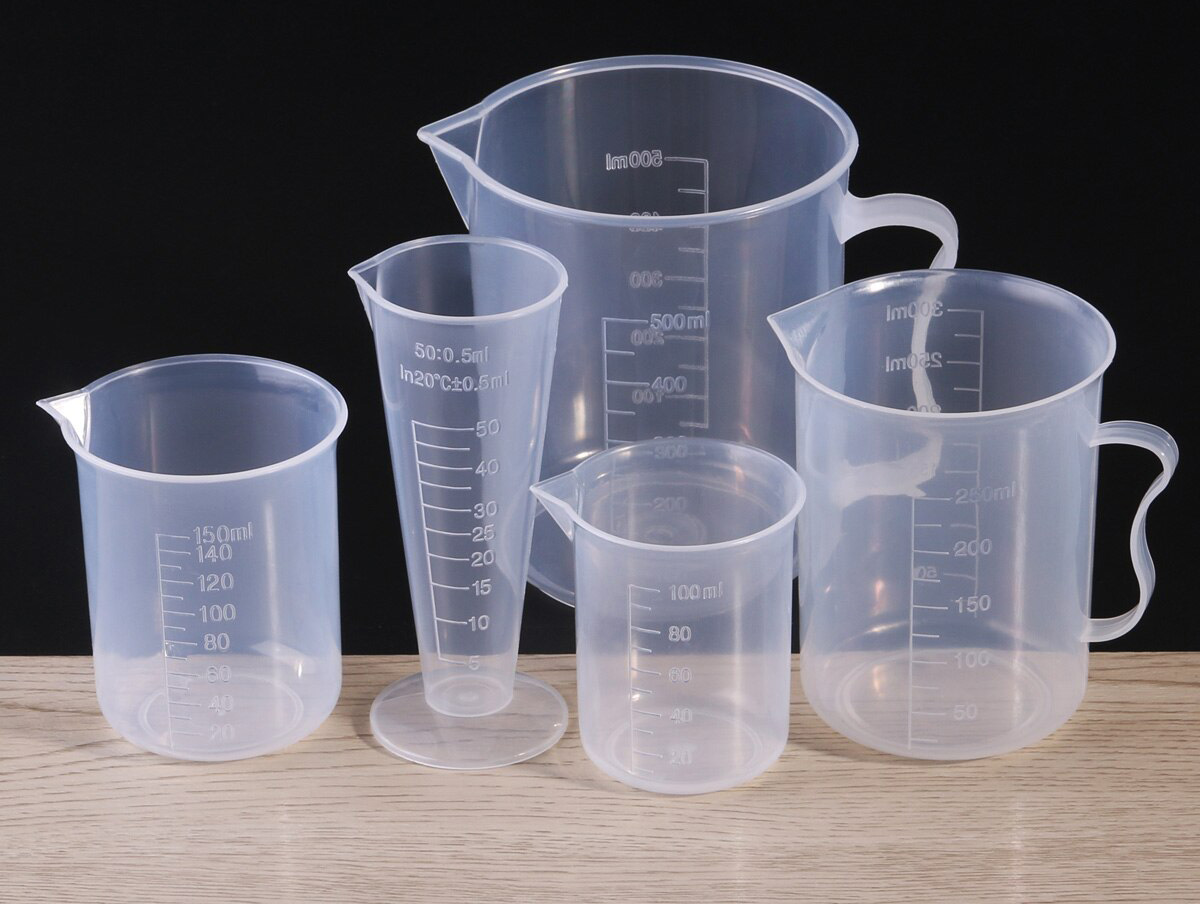
The measuring cup was also used under Peter I to accurately determine the volume of the desired drink. It is difficult to imagine a modern bar without this attribute. In rare cases, an alcoholic drink will be provided to a client without its preliminary dosing.
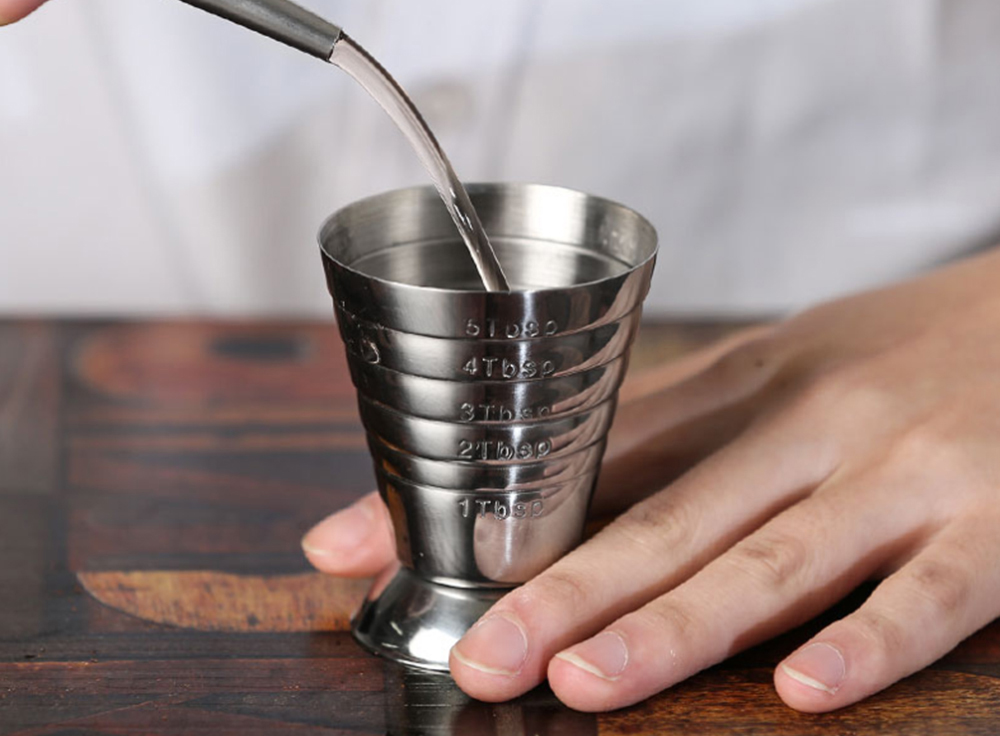
Additional information! There are universal models of measuring cups that have been known for a long time. They are able to determine the criteria of bulk products and liquids at the same time. Such a product is suitable for the kitchen, but will be inappropriate in a bar.
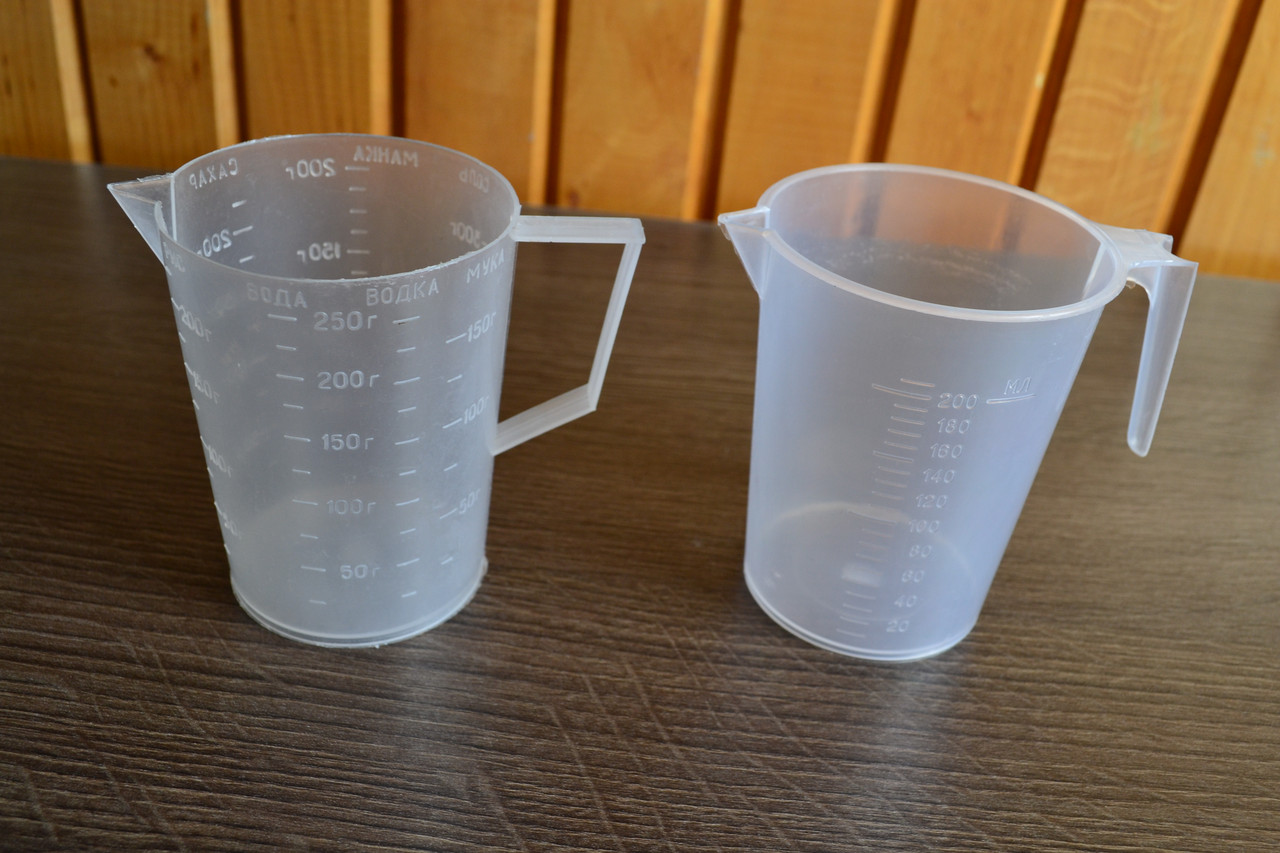
Types of measuring cups
If you want to understand this cookware, you need to highlight three of its indicators: size, source material and application. Based on the parameters stated, you should then consider the products necessary for everyday life.
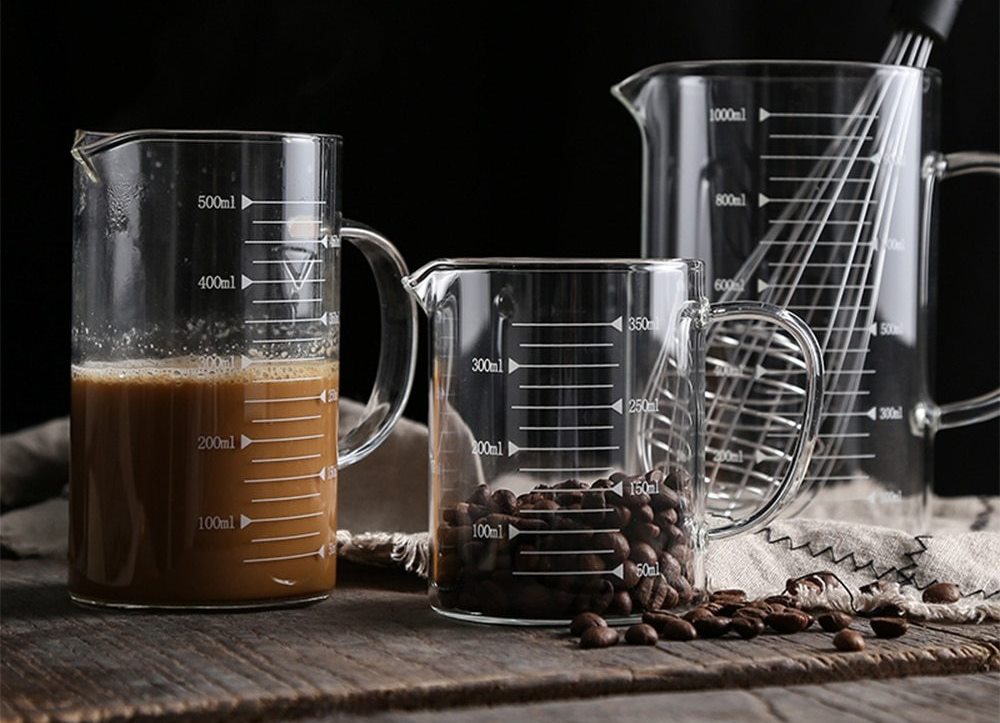
Glasses by volume
The so-called square of the glass is of great importance. It would not hurt to consider five types of glasses with a measure.
- 50 and 100 ml. Similar markings can be found in bars, where the alcohol scale is measured by these parameters.
- 250, 500 and 1000 ml. The parameters given are considered average values, because measuring cups above this mark are made to order.
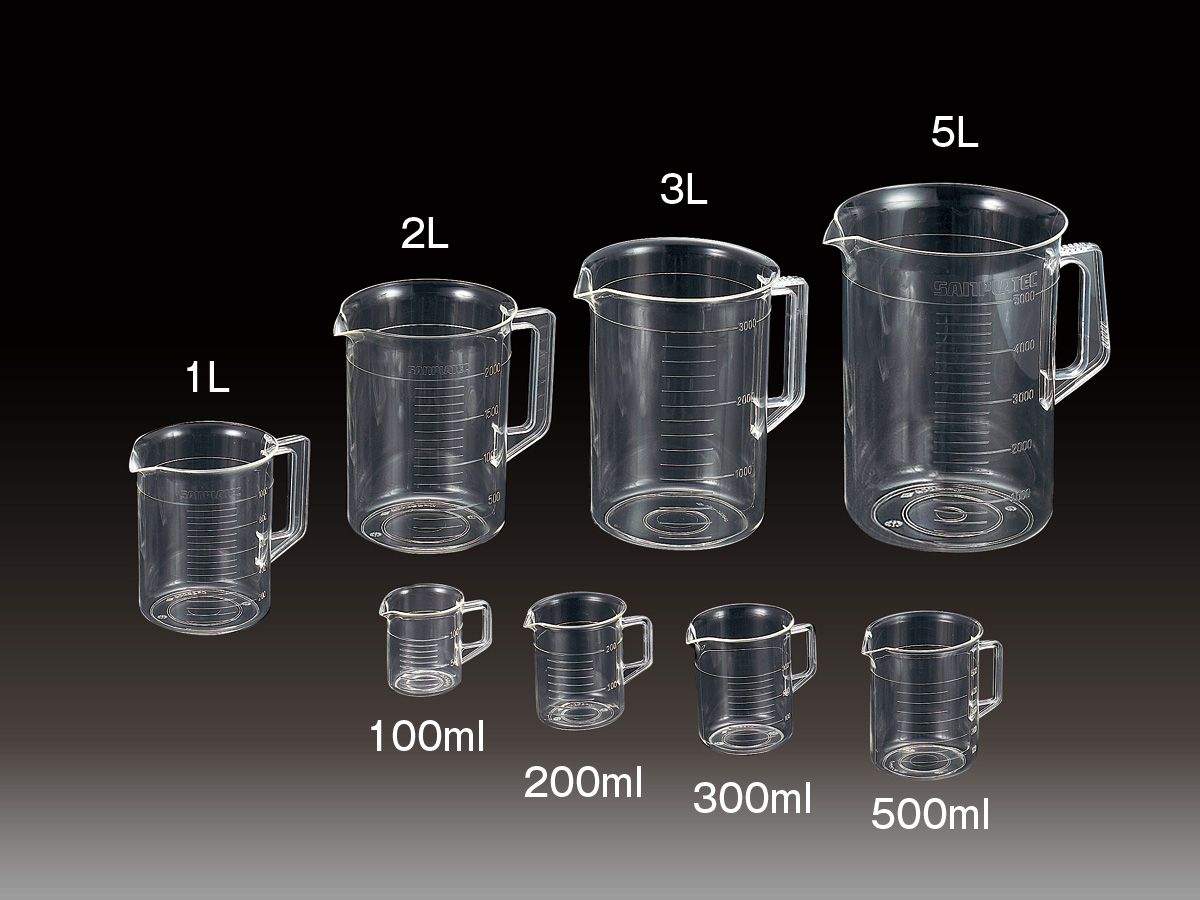
Attention! The average kitchen has a glass with a mark of up to 100 ml. When preparing a complex recipe, 500 ml containers are often used. A large enterprise purchases measuring utensils for 1-5 liters.
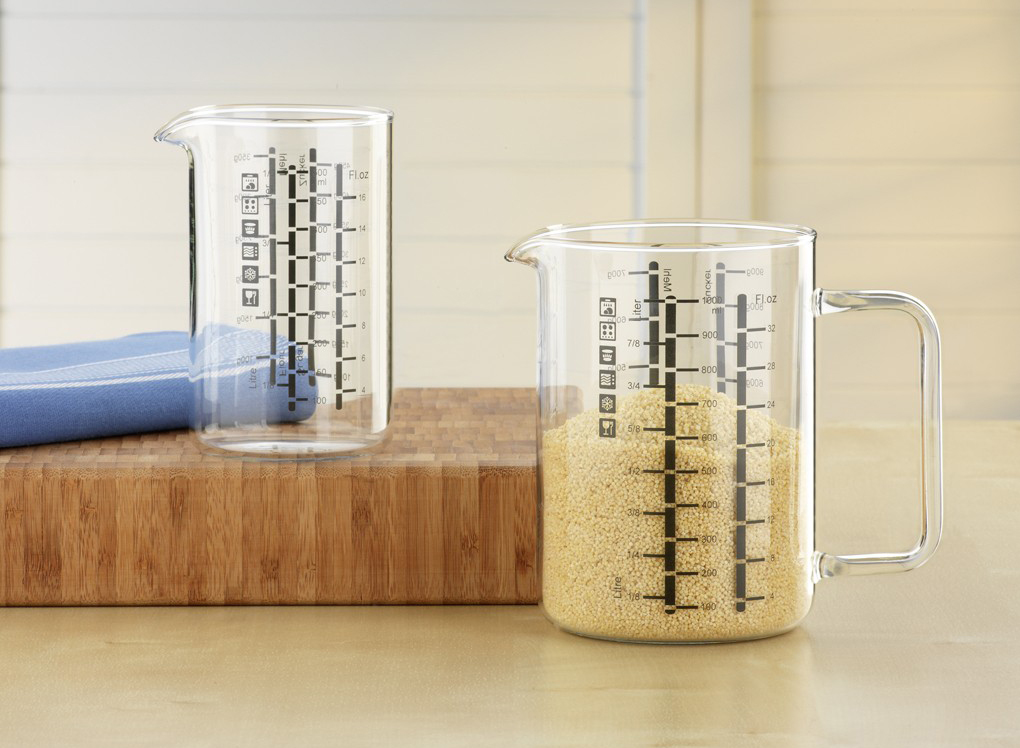
Based on the material
Sometimes it seems that the base of the measuring cup does not matter. Don't jump to conclusions.
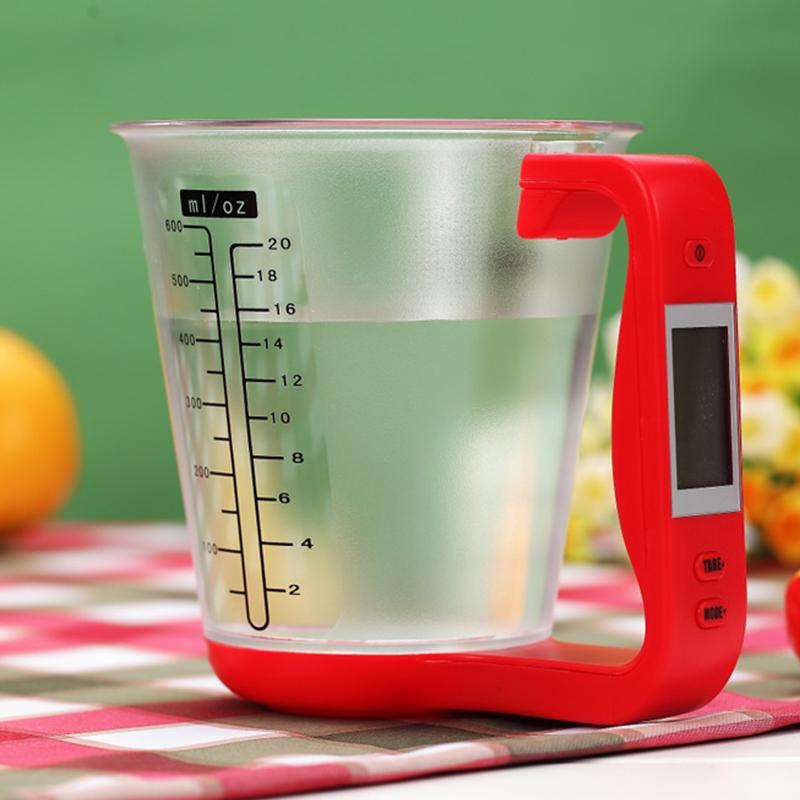
Silicone cups
A silicone measuring cup has some advantages over other materials.
- Practicality. At a low price, such a container is suitable for baby food. What is wrong with using a silicone cup to measure liquids and bulk products at the same time.
- Adaptation. Silicone is good because it rarely deforms when dropped. Its integrity is also preserved during transportation.
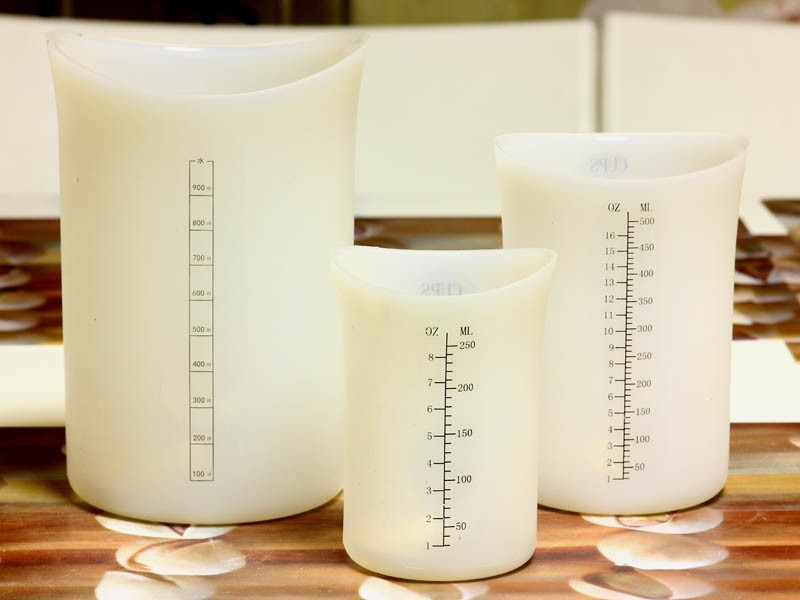
Important! Silicone measuring cups are prone to deformation due to temperature changes. It is also impossible to determine the exact weight of the product in this container, so it is not suitable for laboratory testing.
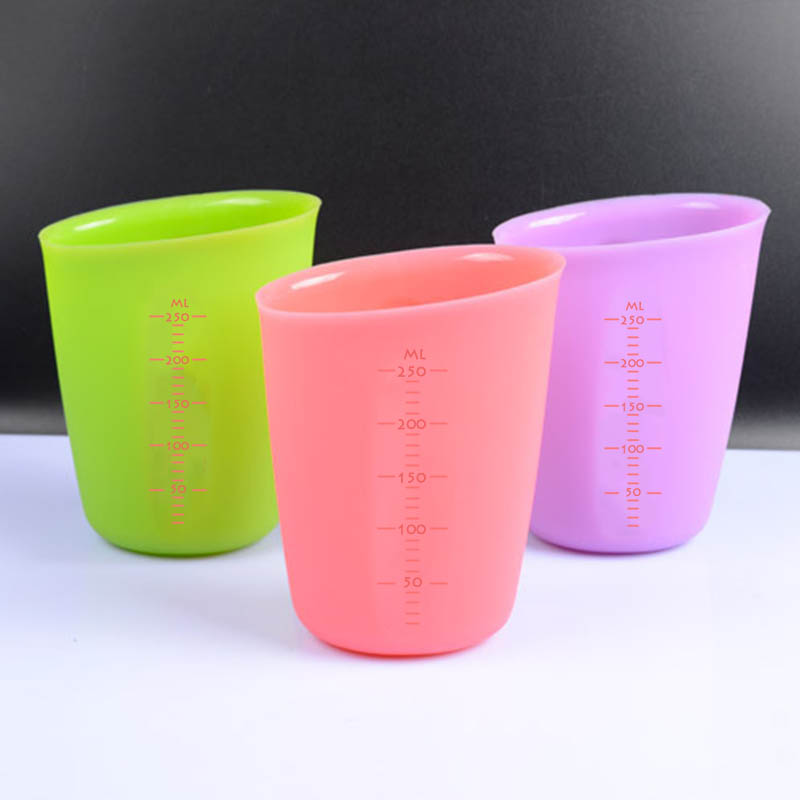
Glass measuring cup
A glass product will cost more than plastic measuring cups. The advantages of such products include the following.
- Presentability. With the help of glass, a measuring cup can be turned into an exclusive product. The shape of such a product should ultimately correspond to its purpose. However, no one has yet cancelled the interesting design of a measuring cup.
- Hygiene. For catering establishments, this factor is a weighty argument for purchasing glass products. Plastic products are rarely used in bars.
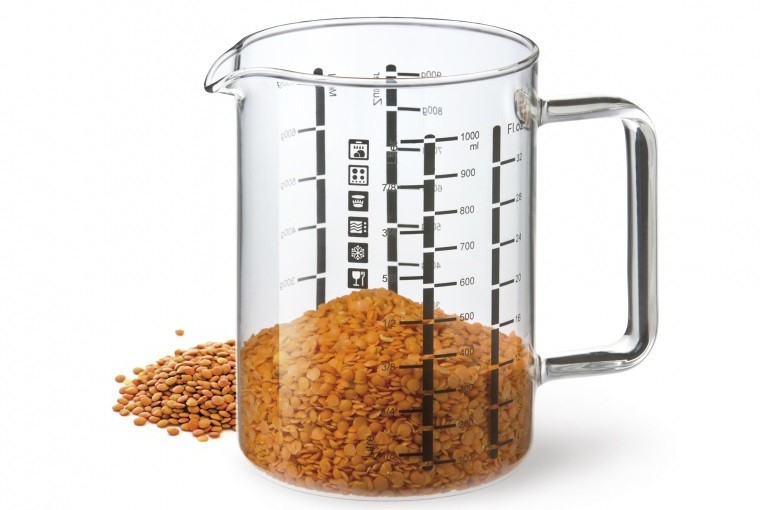
Important! Despite all the advantages of a glass measuring cup, one should remember that it is impractical in some cases. Its base tends to slip in hands and break when the utensils are used carelessly. The way out of this situation is to use heat-resistant materials.
Stainless steel glass
Metal containers will decorate any work area. Stainless steel is the most suitable material for making measuring utensils. The advantages of this metal container:
- ease of cleaning;
- presentable appearance;
- affordable cost.
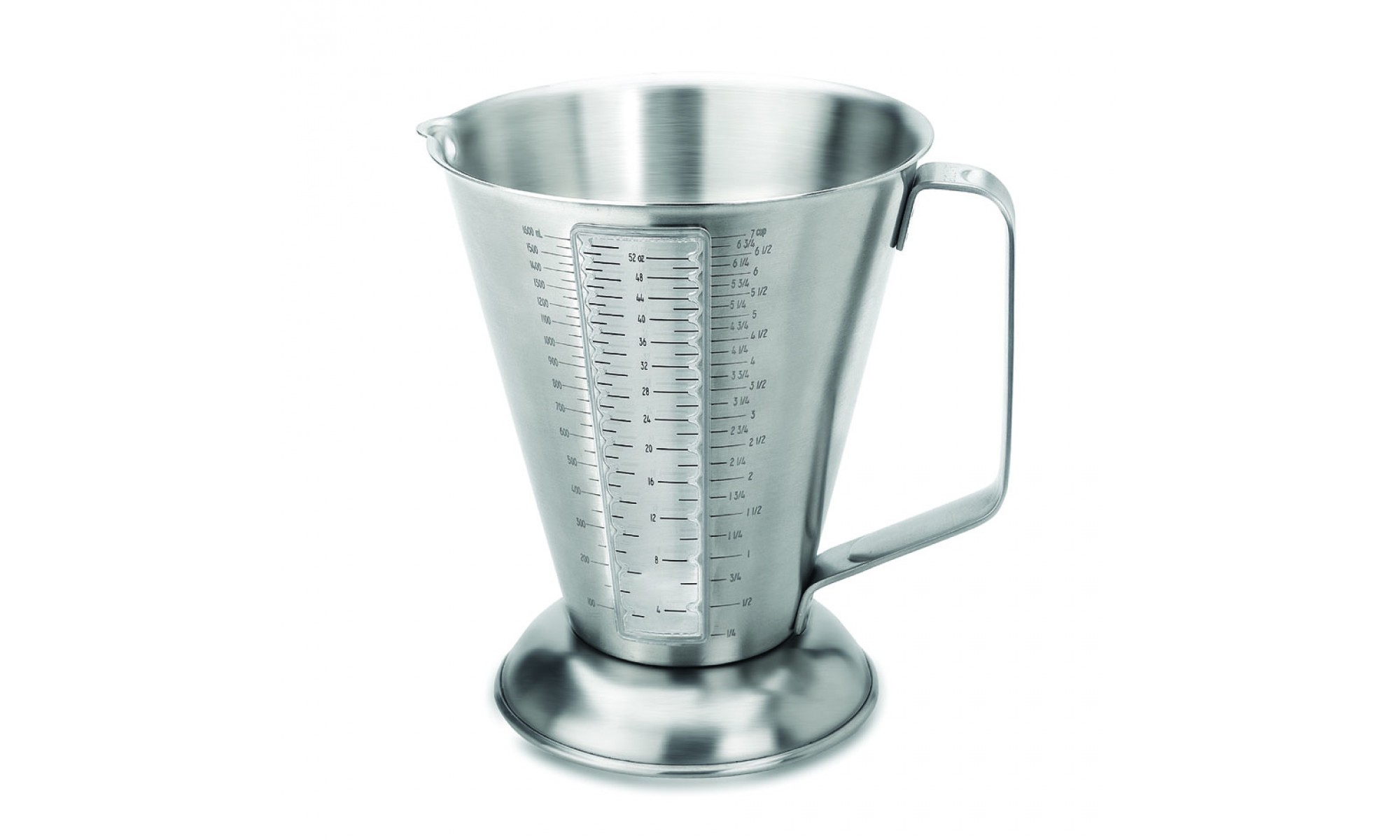
Among the shortcomings of this product, the following should be highlighted:
- deformation when a product made of thin sheet metal falls;
- a high probability of scratches appearing on the surface.
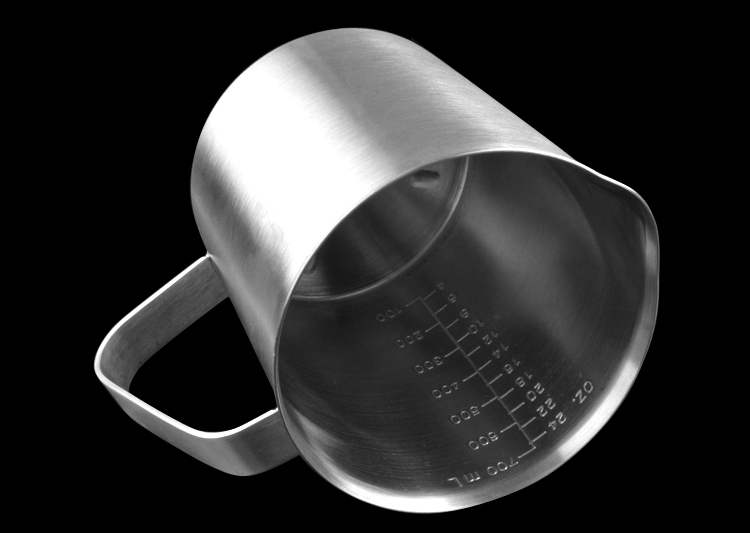
Application
Measuring utensils are indispensable in the following area of human activity.
- Cooking. It is difficult to imagine a housewife who can determine the proportions in a dish by eye. When preparing some food compositions, you cannot do without a measuring cup.
- Alcohol business. The bartender will use a measuring cup to determine the volume of alcohol while serving a customer.
- Science. The modern laboratory is equipped not only with advanced technology, but also with measuring vessels made of various materials.
- Pharmacology. When manufacturing medicines, precision in measuring parameters is essential.
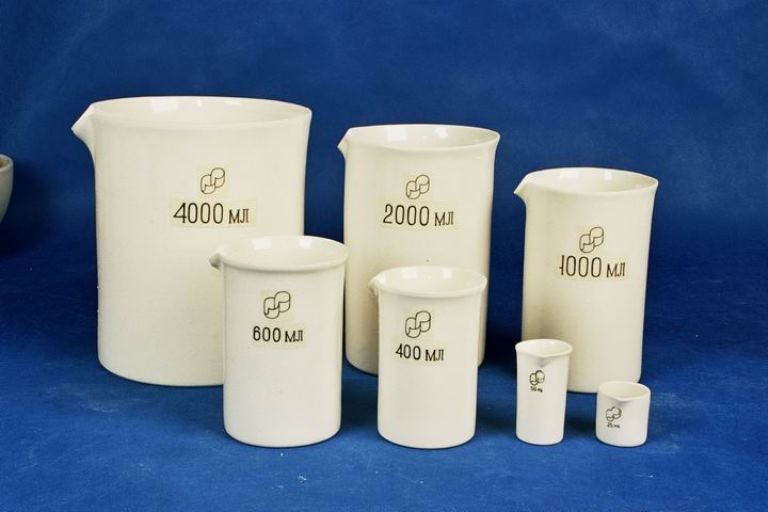
Decoding the symbols on measuring utensils
Such glasses can show both ml and ounces. The number of dashed stripes on the dishes depends on their volume. Manufacturers try to simplify the understanding of the symbols on the container as much as possible.
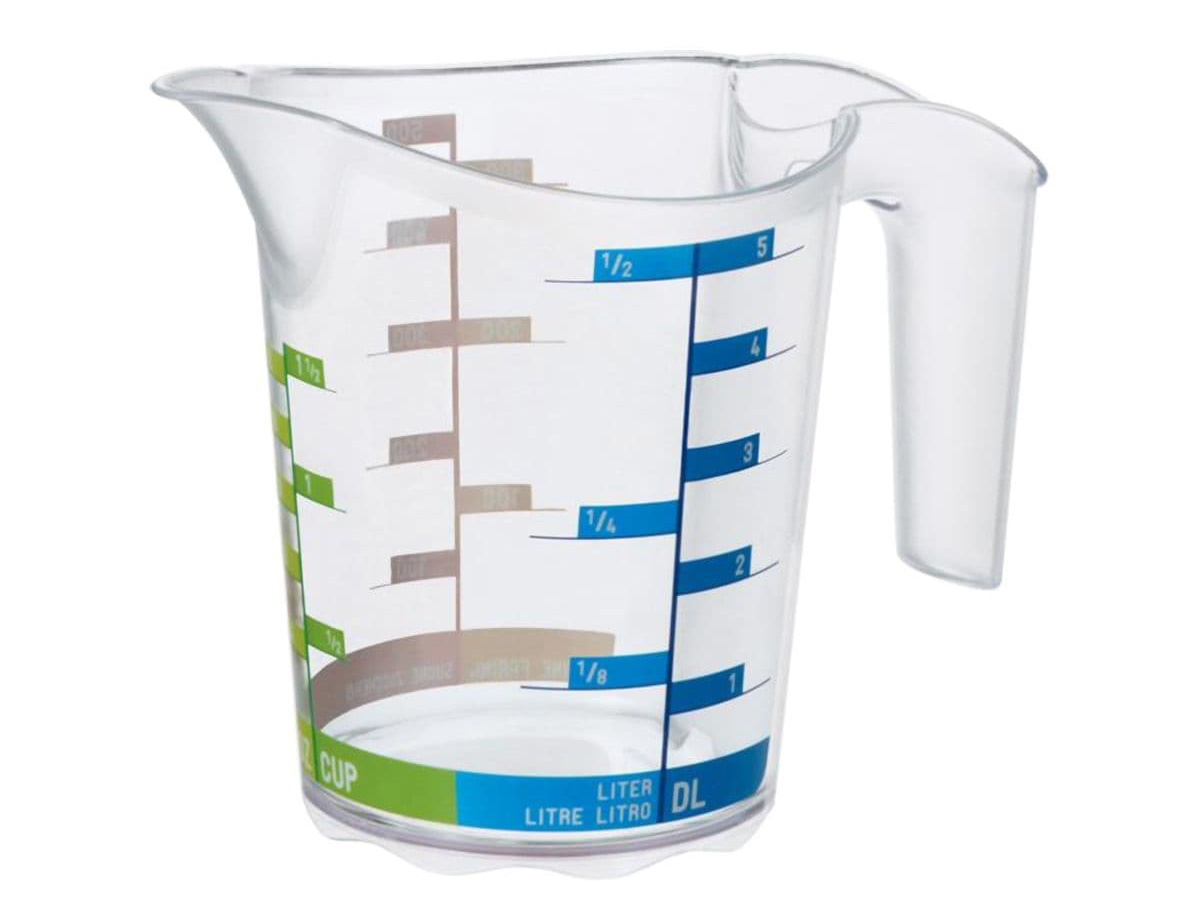
What does fl. oz. mean on a measuring cup?
OZ is an ounce indicator. It is based on the parameters of 28.35 g. FL is a liquid ounce, which means 30 ml.
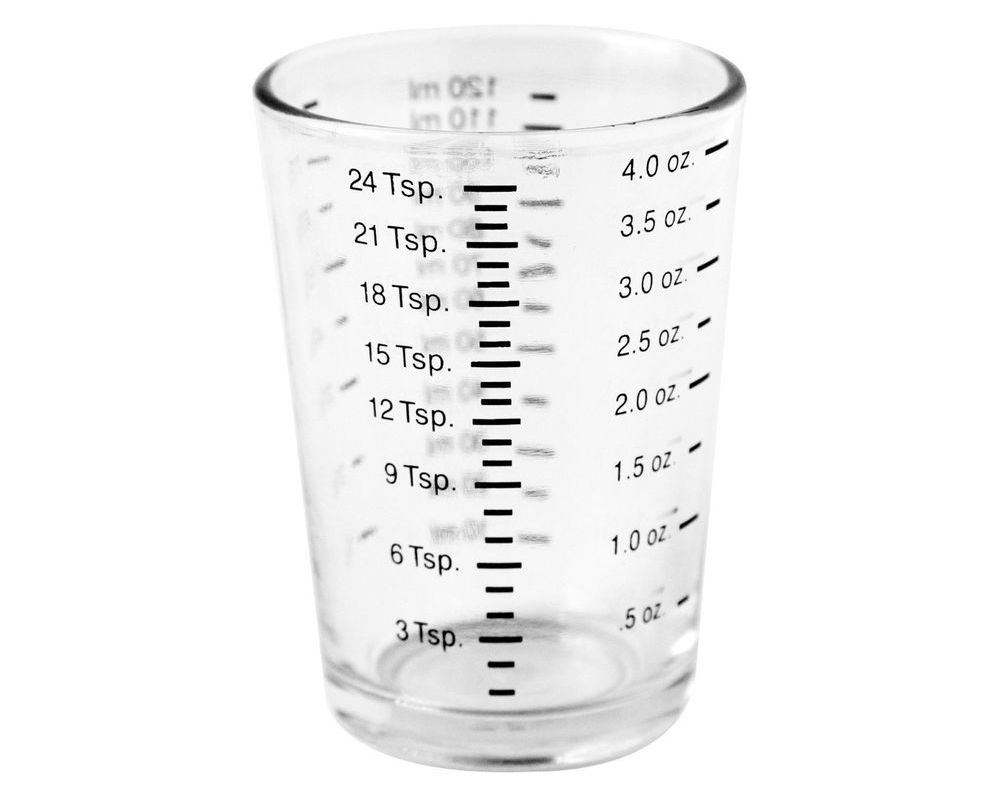
Pts designation on the measuring cup
Pts — pint indicator. The English system of measures is not familiar to domestic consumers. It means parameters of 0.56826125 l. The American version of the pint differs from the English marking. Its indicators are 0.47 l.
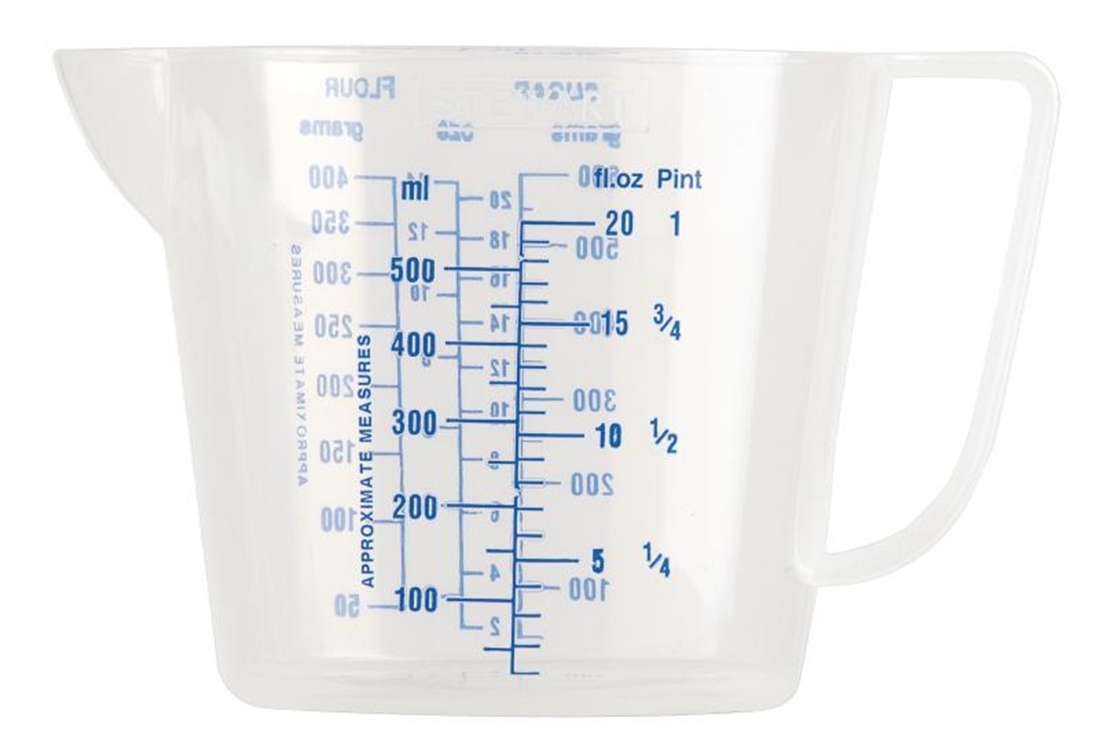
Which measuring cup to choose
When purchasing, you should take into account the following nuances.
- Source material. The product must be made from environmentally friendly raw materials. Otherwise, it will react undesirably with food products. It is best to choose glass as the safest option.
- Volume. For household use, containers from 500 ml to 1 l are suitable. A large food enterprise will not be able to get by with such volumes. For it, it is better to purchase measuring utensils in the range of 1 l+.
- Visual characteristics. The choice will depend on the personal taste of the buyer. When used in everyday life, it is important that the measuring cup matches the existing utensils in the house.
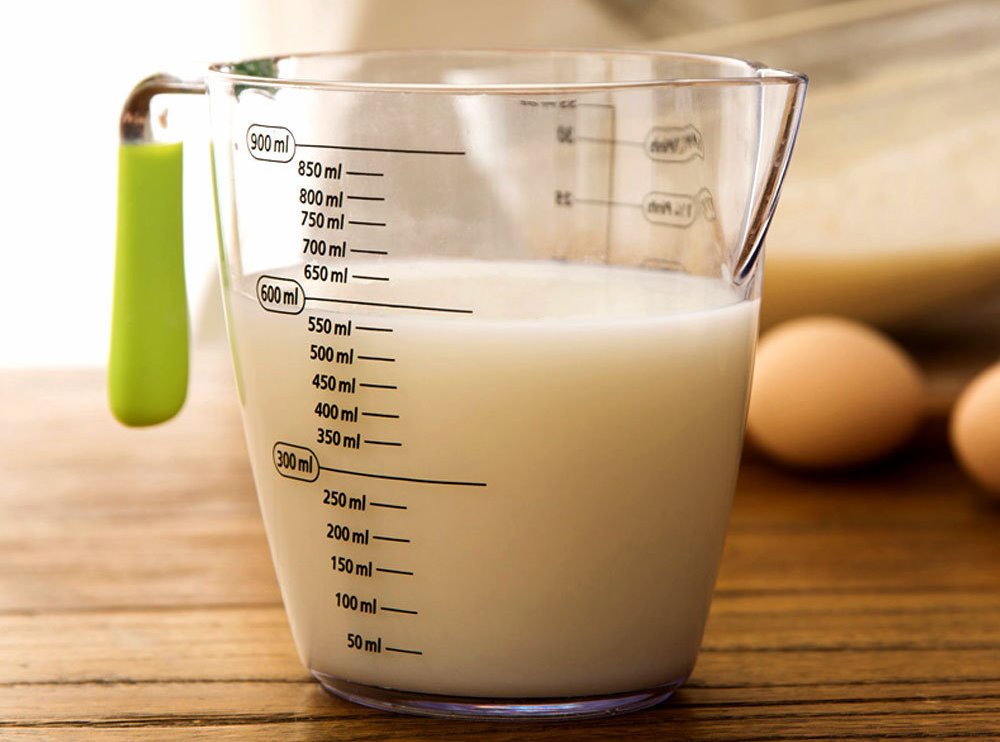
Rules for using measuring cups
Measuring utensils are necessary to follow all the recipe recommendations. The apparent simplicity of using a measuring cup does not correspond to reality, and you need to know the rules for its operation.
- Intended use. The measuring cup must not be used for any other purpose than measuring.
- Drying the glass. Avoid using a wet container when measuring liquids and bulk substances. If this rule is not followed, the calculation will be incorrect.
- Correct placement of the substance. The initial research material must be carefully loaded with a spoon to maintain its consistency.
- Avoiding the formation of an air layer. To avoid this factor, shake the bulk ingredients.
- Correct pouring. There will be no problems with water in such a case. If you want to measure a viscous liquid, you need to pour it slowly along the wall of the measuring vessel.
- Work on a flat surface. It is recommended to forget about the habit of making calculations on weight. Their indicators will not correspond to real figures.
- Correct distribution. It is about the need to designate the parameters of butter. Its study is complicated by the occurrence of air pockets. To prevent this factor, the product is cut into small pieces.
- Proper combination. When cooking, cooks have to measure liquids and dry substances. It is necessary to analyze the dry components of the dish after studying the recipe.
- Generosity in volume calculations. This applies to cases where it is necessary to examine the parameters of a bulk ingredient. The excess can be easily removed later with a knife.
- Providing humidity in the room. In this situation, the factor of using a faceted cup or a container with a scale is not important.
- A reasonable choice of capacity. You should not buy a large measuring cup if you are faced with minimal portions when cooking at home.
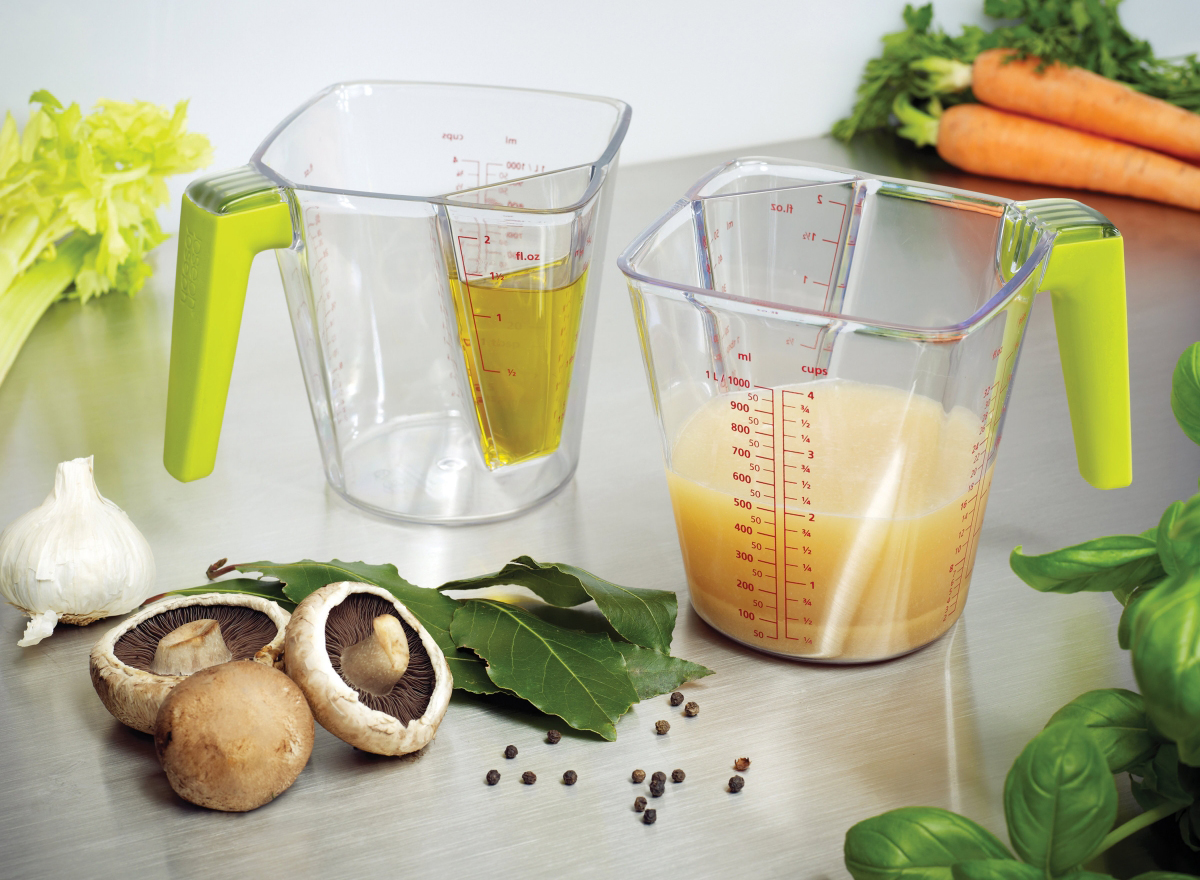
Attention! If you follow these rules, you can really achieve accurate measurement results. Otherwise, the taste of the dish may change significantly.
Recommendations for the care of measuring utensils
Special care is a guarantee that the measuring cup will have a long shelf life. The service life of such utensils will be maximum if certain rules are followed.
- The right choice of detergent. It should not contain abrasive particles. A detergent without the approval of a sanitary and hygienic examination is not suitable for use.
- Limited choice of brushes. It is best to purchase a soft foam sponge. It is not permissible to use a coarse cleaning brush.
- Temperature control. Do not wash measuring cups in cold water. It is better to choose a medium temperature setting. After measuring the volume of oily liquid, such dishes are cleaned with hot water with a small amount of vinegar added to it.
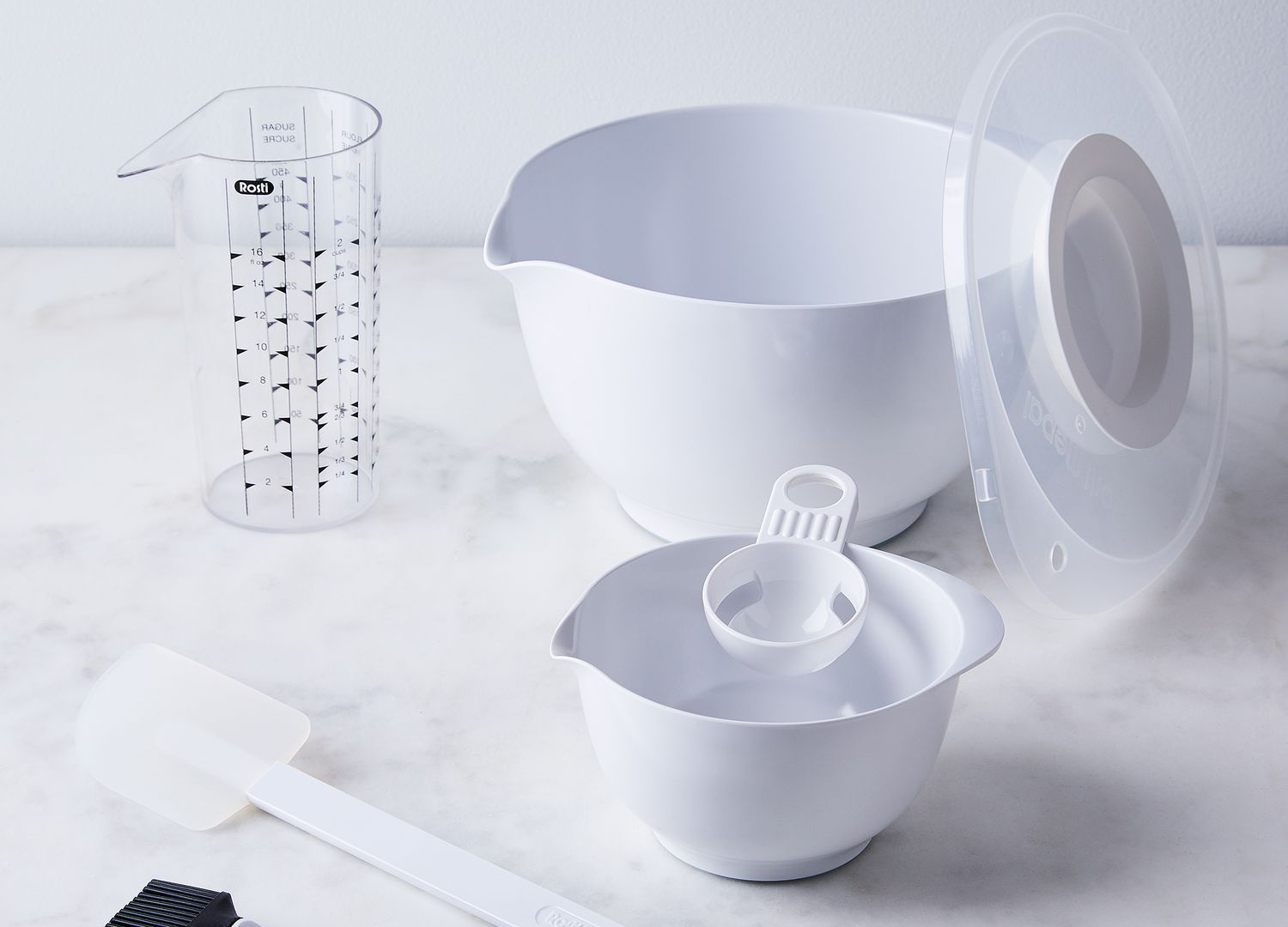
Manufacturers of measuring utensils
If you want to purchase quality products, you should choose trusted suppliers of goods.
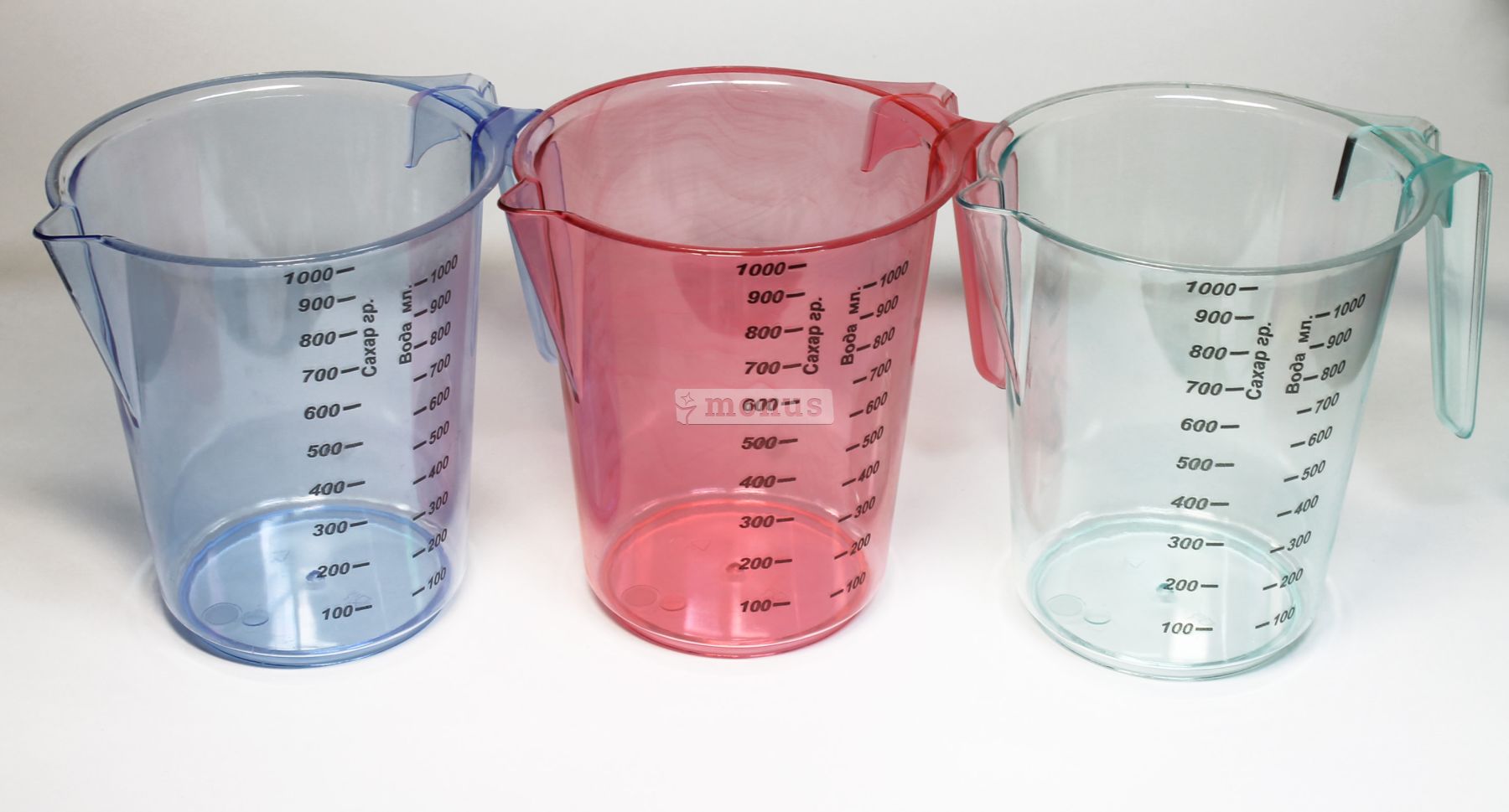
Bormioli Rocco Frigoverre
The main focus of this manufacturer is on the practicality of the product and its size. The standard for such products is considered to be a volume of 1 liter. The glass measuring cup from Bormioli Rocco Frigoverre is safe to use. The container is equipped with a plastic lid.
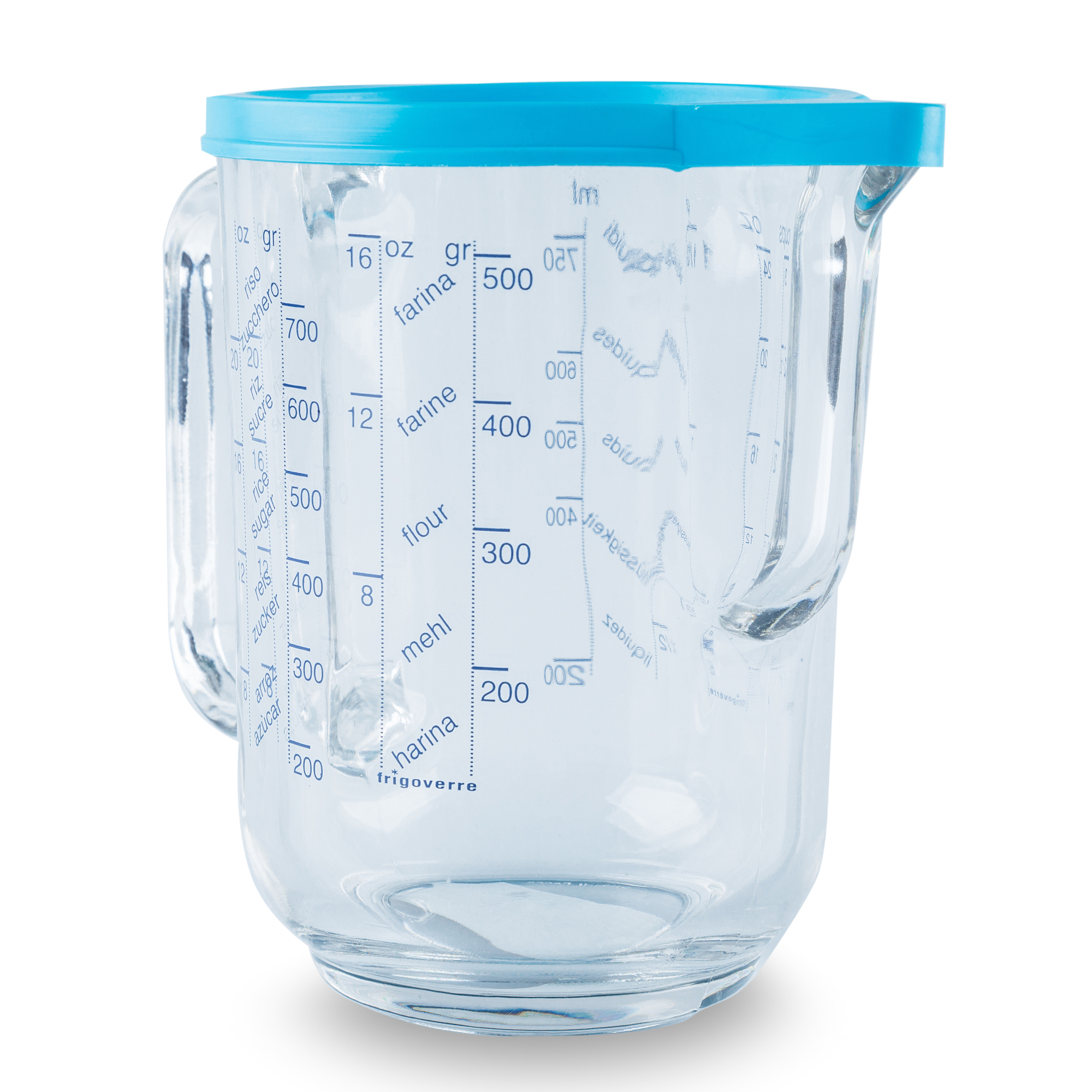
Leifheit Comfortline
The main product of the company is polymer measuring glassware. The capacity of the container is 500 ml. The purpose of the product is to measure the parameters of bulk substances and liquids. The container is made of transparent polymer, which makes the product a popular product. Among its advantages, one can note the ease of cleaning the glass and the lack of slipping on the surface.
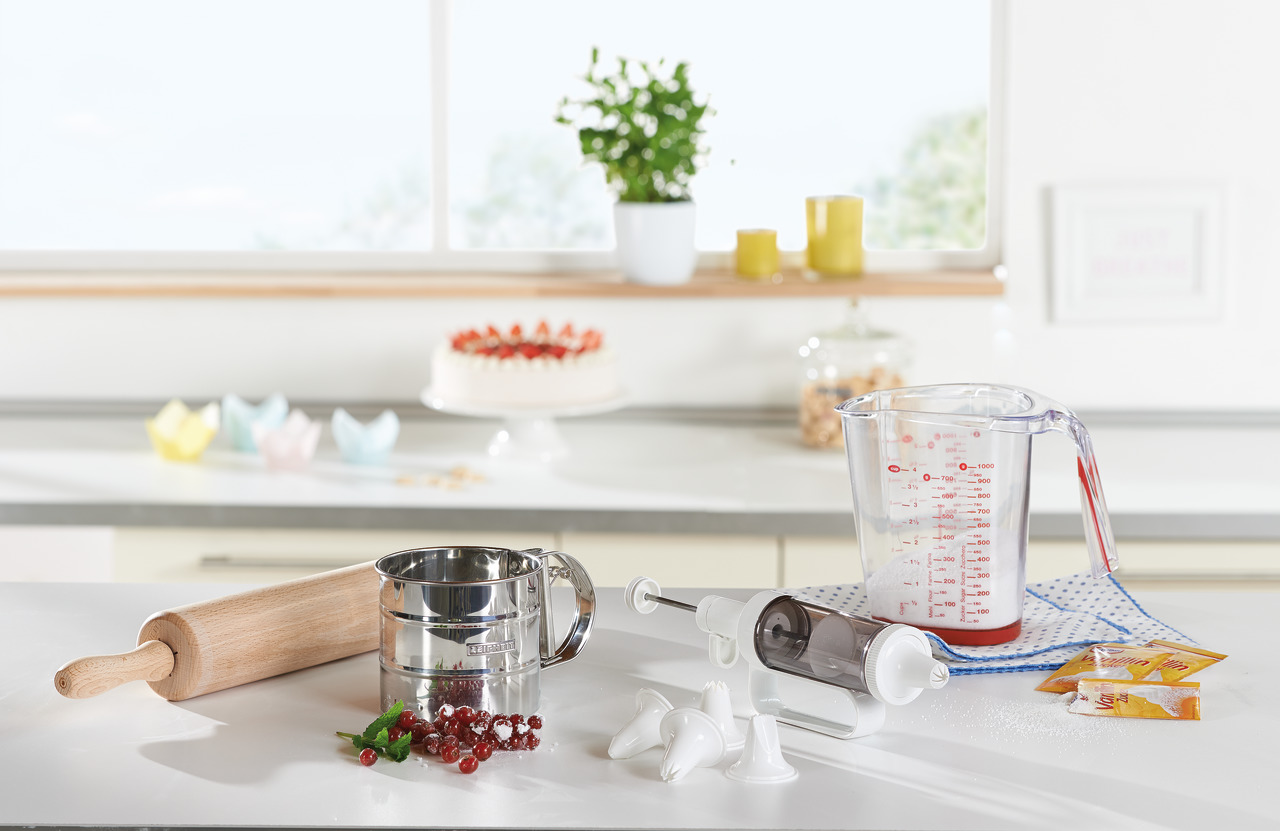
Simax
Thermal glass containers do not deform when exposed to temperature changes. Their surface is not damaged at -40°C. The integrity of a 500 ml measuring cup is not damaged when the temperature rises to 300°C.
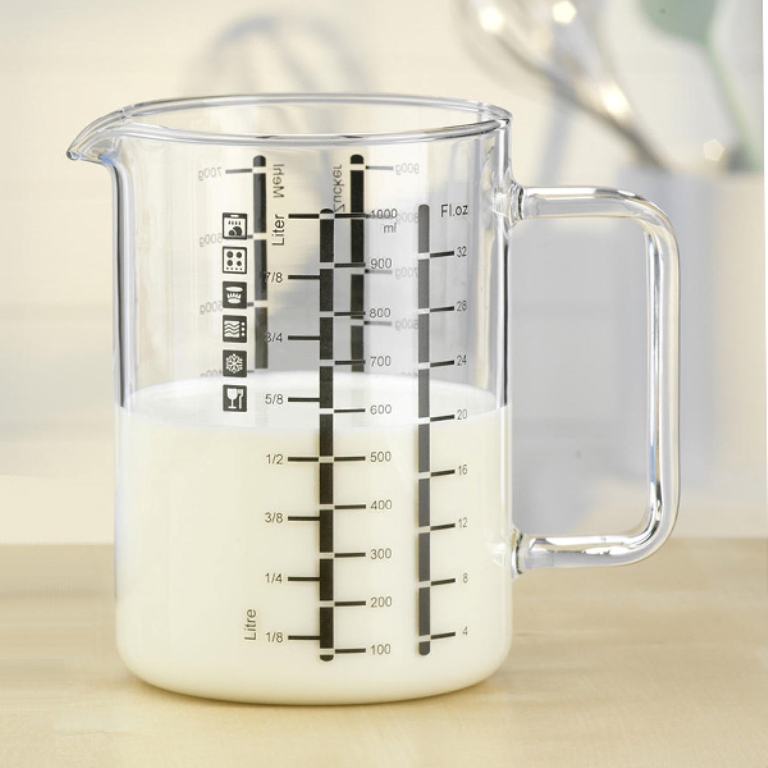
"Horizon"
The domestic manufacturer offers measuring utensils made of plastic.
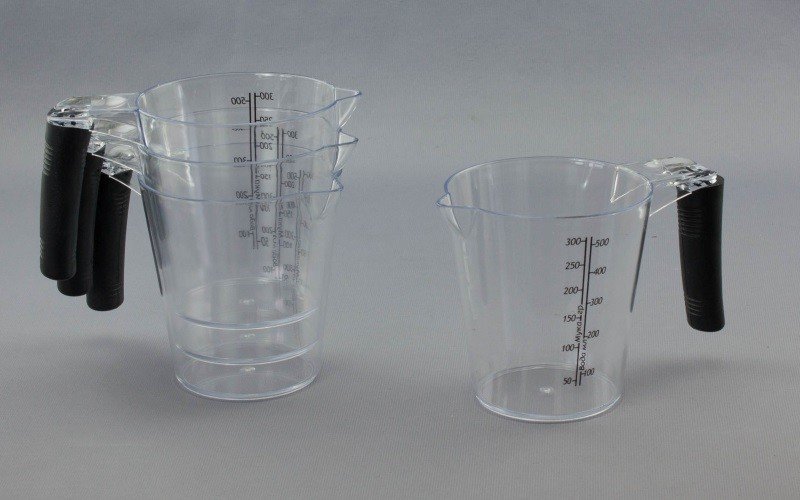
Measuring cups should be selected taking into account their further use. Laboratory material cannot be identical to household utensils. This should be remembered when buying a measuring container.

